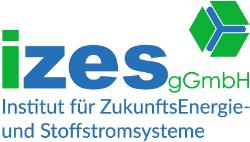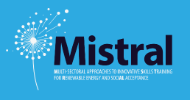Institute for Future Energy Systems
Institute for Future Energy and Material Flow Systems (IZES gGmbH)
IZES will host 2 Early Stage Researchers
- Irmak Karakislak (ESR1) Justice Perceptions in Intercultural Comparison
- Mariangela Vespa (ESR3) Cumulative Impacts on People-Place Relations
IZES is the associated research institute of the Saarland University of Applied Sciences for Engineering and Economy. Founded in 1999, IZES turned into a non-profit organisation (gGmbH) in 2005 with shareholders as the federal state of Saarland, Saarland University of Applied Sciences, University of Saarland and residential energy companies. In 2011, the interdisciplinary research group of around 40 employed scientists from engineering, natural, economic, law and social sciences achieved a turnover of about 2.7 million Euros. The main research area is represented by applied research activities towards the development and acceleration of renewable energies, decentralized energy production and distribution, energy efficiency and regional material flow and resource management. The IZES gGmbH is advising, accompanying and carrying-out activities to initiate, devise and realise innovative measures for a rational energy use and for the application of renewable energies. IZES is based in Saarbrücken and has an additional office in Berlin.
The Department of Environmental Psychology at IZES gGmbH in Saarbrücken was founded from the Research Group Environmental Psychology (FG-UPSY) lead by Prof. Dr. Petra Schweizer-Ries. The Department of Environmental Psychology analyses the psychological and social factors connected to energy production and consumption. The main goal of the research is to develop new ways and recommendations for a sustainable and socially acceptable transition of the energy system. From a systemic perspective, qualitative and quantitative research methods are used in interdisciplinary and transdisciplinary approaches. Besides the research on acceptance and participation processes in the context of energy transition, a main focus is on the psychological factors determining energy-efficient usage at household, community, and organisational levels, as well as the involvement of several focus groups on the transition process.


